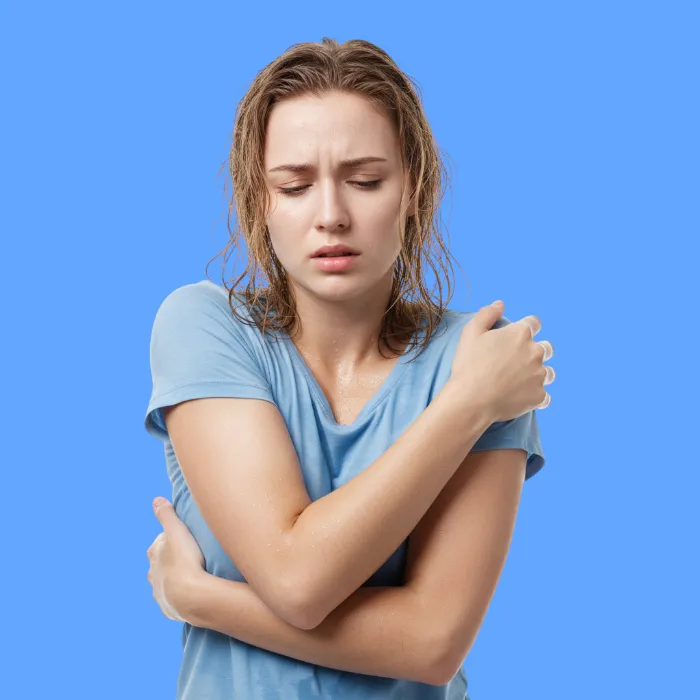What is malaria?
Malaria is a serious parasitic disease transmitted to humans through the bite of an infected female Anopheles mosquito The infection begins when the parasites enter the bloodstream, settle in the liver, and then move on to destroy red blood cells.
Malaria is not a contagious disease between people, but it spreads widely in tropical regions and is considered one of the deadliest diseases in the world, especially in Africa and Asia.
What are the causes of malaria infection?
Malaria infection occurs due to exposure to Plasmodium parasites, which are transmitted in several ways, including:
- Bite of an infected female Anopheles mosquito
- Receiving contaminated blood from an infected person
- Using contaminated needles or medical tools
- Transmission from mother to fetus during pregnancy or childbirth
- Traveling to endemic areas without protection
- Weakened immunity in children or pregnant women
- Not using mosquito nets or insect repellents
- Not taking preventive medication before travel
What are the common symptoms of malaria?

Malaria symptoms usually appear 10 to 15 days after the bite and may include:
- Recurrent fever
- Chills and excessive sweating
- Severe headache
- Muscle and joint pain
- Nausea or vomiting
- General fatigue and exhaustion
- Yellowing of the skin and eyes
- In severe cases: seizures or loss of consciousness
When should you see a doctor?
You should seek medical attention immediately if you experience concerning symptoms after traveling to or staying in an endemic area, such as:
- Fever lasting more than two days
- Repeated chills
- Persistent headache not relieved by painkillers
- Continuous vomiting or dehydration
- Confusion or seizures
- Difficulty breathing
- Yellowing of the skin or eyes
- Severe weakness or sudden dizziness
What are the treatment options for malaria?
Malaria treatment depends on the type of parasite and the severity of the condition. Options include:
- Artemisinin-based combination therapies (ACTs)
- Medications like chloroquine or mefloquine depending on the parasite type
- Supportive treatment to reduce fever and pain
- Blood transfusion in cases of severe anemia
- Intensive care for cerebral malaria cases
- Immediate treatment within the first 24 hours to avoid complications
- Avoiding herbal or unapproved remedies
- Medical follow-up after treatment to ensure full recovery
Can malaria be cured?
Yes, malaria can be completely cured if diagnosed and treated in time.Modern medications help eliminate the parasites within a few days.
However, the speed of recovery depends on the parasite type, the patient's overall health, and their response to treatment In some cases, long-term follow-up may be needed to prevent relapse.
What are the prevention tips for malaria?
Preventing malaria starts with awareness and taking proper precautions, including:
- Using insecticide-treated mosquito nets
- Applying insect repellent to exposed skin
- Wearing long clothing in endemic areas
- Taking preventive medication before travel
- Avoiding nighttime outings in mosquito-prone areas
- Eliminating stagnant water around the home
- Installing screens on windows and doors
- Consulting a doctor before traveling to endemic regions
What are the possible complications of malaria?
If not treated promptly, malaria can lead to serious complications, such as:
- Severe anemia due to red blood cell destruction
- Kidney or liver failure
- Cerebral malaria (causing coma or seizures)
- Severe respiratory distress
- Critically low blood sugar
- Brain edema (fluid accumulation in the brain)
- Death in advanced cases
- Recurrent infections if the parasite is not fully eliminated
Frequently asked questions about malaria
Does malaria affect pregnant women?
Yes, and they are among the most vulnerable to complications.
Does malaria affect children more?
Yes, children under five are at the highest risk of death.
Can malaria lead to death?
Yes, if not treated quickly, it can be fatal.
Is malaria present in Egypt?
Egypt was declared malaria-free since 2024.
Article summary
Malaria is a dangerous parasitic disease transmitted by the bite of an Anopheles mosquito, affecting millions annually Its symptoms range from fever and headache to life-threatening complications like cerebral malaria.
Prevention and early diagnosis are the first line of defense, and immediate treatment saves lives.Consult a doctor as soon as symptoms appear, especially after traveling to endemic areas.